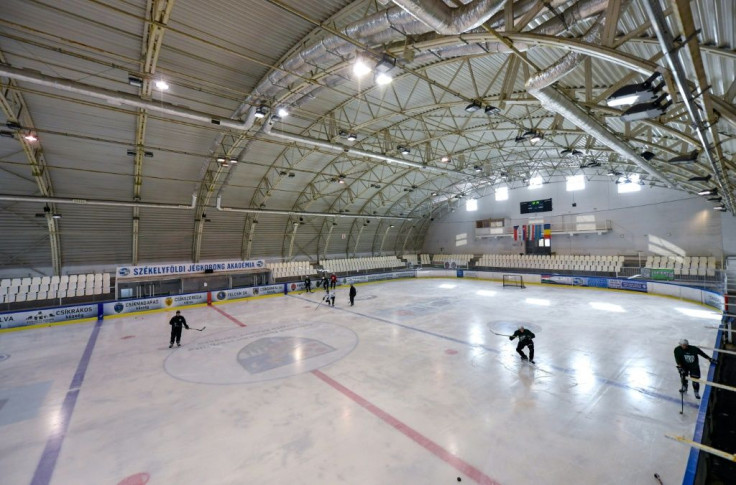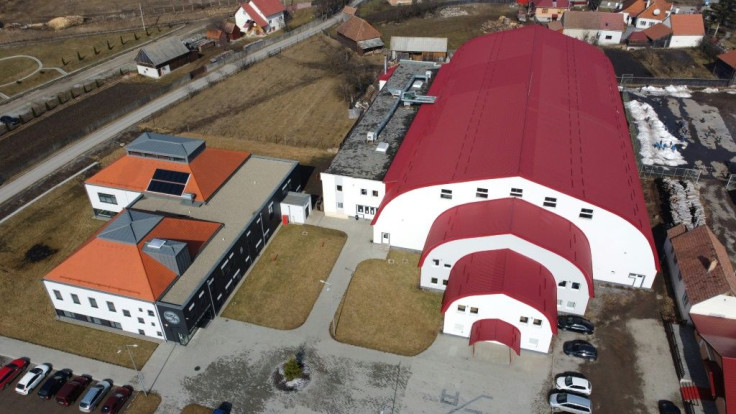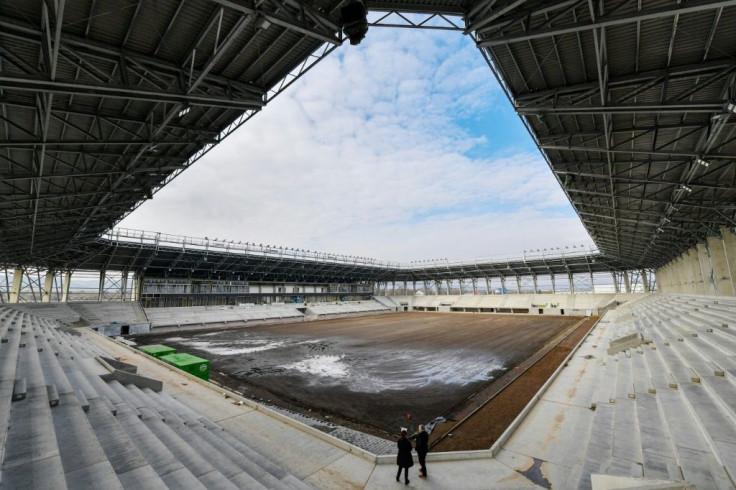Orban's Largesse Wins Over Romania's Hungarians
In the village of Carta, deep in Romania's Transylvania region, the fruits of Hungarian Prime Minister Viktor Orban's generosity towards the country's Hungarian ethnic minority are plain to see.
Attila Nagy walks proudly along the hallways of the modern medical centre he manages, part of the ice hockey academy built in Carta with money from the Hungarian government.
The complex also boasts an ice skating rink and a hotel, and is overseen by the Mens Sana foundation, a Romanian NGO which receives funding from Budapest.
Of the 10 million euros ($11.9 million) Mens Sana spent on the centre, 90 percent came from Hungarian taxpayers.

Since he returned to power in 2010, Orban has pumped millions of euros through grants and NGOs towards Hungarian communities in Romania, Serbia, Slovakia and Ukraine, with the influx of money increasing after 2016.
More than 250 million euros have so far reached Hungarian communities in Romania alone.
The cash has flowed to schools, stadiums and small factories across Transylvania, home to most of Romania's 1.2 million ethnic Hungarians -- over six percent of the country's population.
The money has created a loyal voter bloc for Orban's Fidesz party, with 96 percent of diaspora Hungarians voting for the party in 2018 elections.

But the largesse has irked the Romanian government.
The foreign ministry said recently that "granting economic aid goes beyond the sphere of preferential treatment that a state can offer to a minority living in another country".
On a visit to Bucharest last month, Hungarian Foreign Minister Peter Szijjarto ruled out any change of course.

"Orban is animated by a nationalist ideology" aimed at "maintaining compact ethnic communities, which allows them to obtain a certain autonomy", Tamas Kiss, a sociologist at the Romanian Institute for Research on National Minorities, told AFP.
The Pro Economica Foundation, one of the vehicles Budapest uses to allocate the money, rejects accusations of discrimination, insisting that it "never checks the ethnicity" of those who receive its funds.
It does however say that part of its mission is to ensure "sustainable economic development and job creation", describing this as "crucial for Romania's ethnic Hungarians to be able to stay in the country".

The wave of westward emigration that has decimated Romania's population for the past three decades has not spared the Hungarian minority, which has lost a quarter of its members in 20 years.
One of the recipients of Pro Economica grants is the Csiki Chips crisp factory in Transylvania's Harghita region, which is trying to help stem that tide.
Together with its sister enterprise, a craft beer brewery called Csiki Sor, "we are helping 260 people and their families make a living", says factory spokeswoman Margit Tofalvi.
Back in Carta, Nagy says the ice hockey academy has been one of the reasons the village's young people are choosing to stay. He also stresses that both ethnic Hungarians and Romanians have benefited.
"Our life has changed a lot", says resident Zsolt Marton, adding he is grateful for the opportunities the academy gives his four children, aged between 11 and 23.
"The moral support of the Hungarian government already counts a lot for me, but the financial support is welcomed too", he says.
That support shows no signs of slowing.
On the outskirts of the city of Sfantu Gheorghe, around 100 workers are labouring around the clock so that a modern 8,400-seater stadium for the local Sepsi OSK football club can open in June.
"Everyone knows that the funding -- 25 million euros ($30 million) -- comes from Hungary," club vice-president David Kertesz told AFP.
Cultural life has also flourished in other ways for Romania's Hungarians in recent decades.
Victims of a policy of assimilation under the communist regime, they are now entitled to use their language in administration and be taught in Hungarian from kindergarten to university.
But the often dilapidated infrastructure of their region, while not uncommon in one of the EU's poorest countries, also fuels perceptions among the minority of being "abandoned" by Bucharest.
There's little doubt in Nagy's mind that his ice hockey academy would not exist without the aid from Hungary.
"I don't see what the problem is" with Budapest's policies, says Nagy, urging the Romanian government to follow its lead in delivering investment.
"Otherwise there will only be the old people left in a few years, it will be a disaster."
© Copyright AFP {{Year}}. All rights reserved.





















